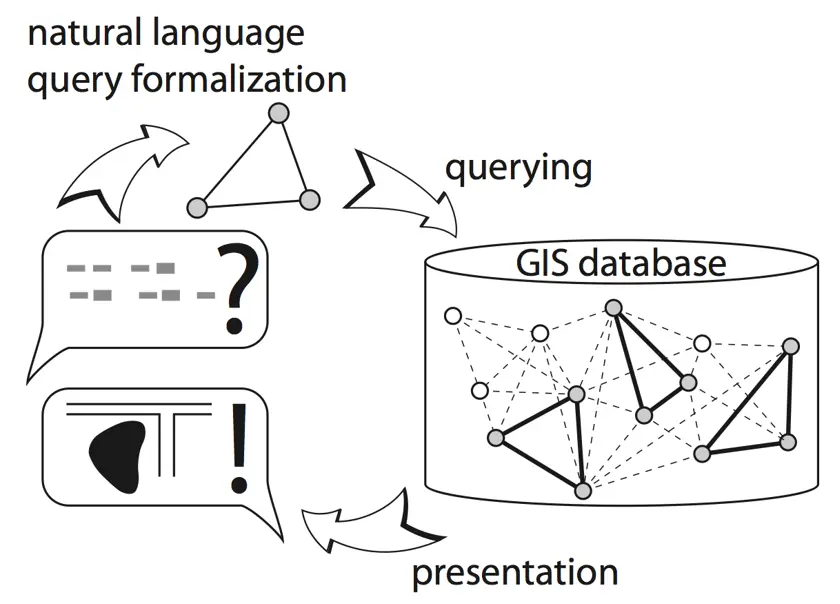Context-Sensitive Qualitative Spatial Reasoning for Interpreting Vague Place Descriptions

This project investigates Qualitative Spatial Reasoning (QSR) techniques to capture context-sensitive vague spatial information in human-generated place descriptions and develops algorithms that allow geographic databases to be queried using such descriptions. For example, we aim to identify geographic entities based on textual descriptions like “a park near the river banks”.
Research questions addressed:
- To which extent can qualitative representations capture semantics of vague place descriptions?
- How can distinct vague relations be integrated for joint processing?
- How can a geographic database be queried efficiently using vague relations?
Partner
Diedrich Wolter, Smart Environments, University of Bamberg projects within DFG priority program 1894 “Volunteered Geographic Information: Interpretation, Visualisation and Social Computing”
Funding
DFG, 2016–2019
Publication
Diedrich Wolter & Jan Oliver Wallgrün (2012). Qualitative spatial reasoning for applications: new challenges and the SparQ toolbox, in Qualitative Spatio-Temporal Representation and Reasoning: Trends and Future Directions, Shyamanta M. Hazarika (Editor), IGI Global, Hershey (PA), USA
